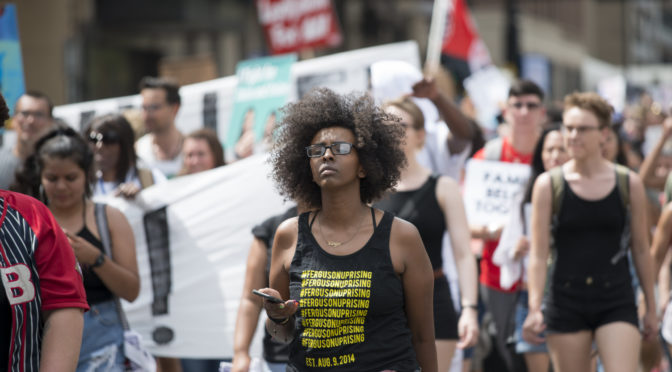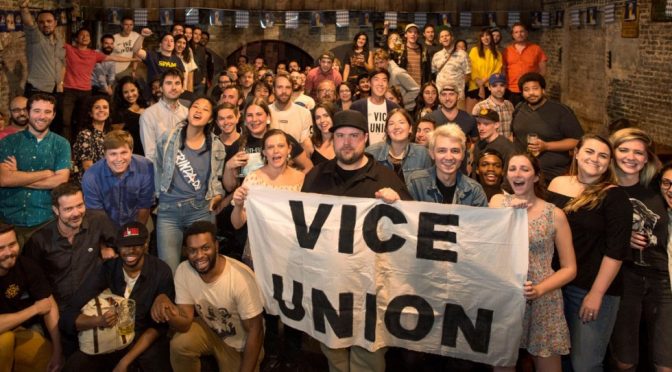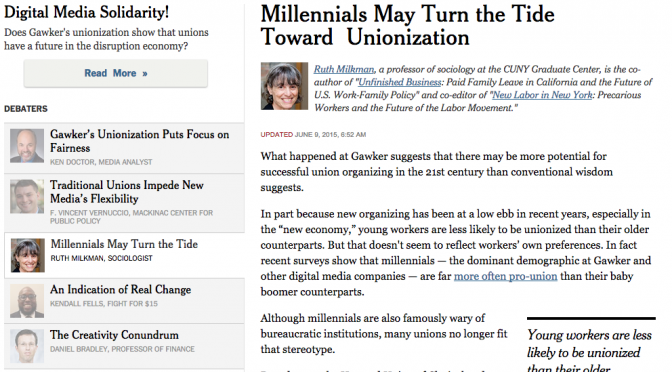The New Labor Forum has a bi-weekly newsletter on current topics in labor, curated by the some of the most insightful scholars and activists in the labor world today. Check out some highlights from the latest edition below.
This installment of New Labor Forum Highlights brings a sneak peek at the May 2019 issue just before it rolls off press. In the cover article, linked here, Nick Serpe assess whether millennials, indeed, constitute a political category. Not since the 1960s has a cohort of young people felt so drawn to a radical critique of American society. Back then it was a college age population growing up in a period of post-war prosperity. Today, it’s a somewhat older cohort in their mid-twenties to thirties, coming of age in far more austere circumstances. In both cases, however, a sizeable fraction of American youth did and are now again concluding that something is profoundly wrong in the “homeland.” Demographics don’t lie. But what we make of them is not so straight-forward. Generational analysis is a tricky business that Serpe explores to unravel the enigma.
Also linked here, you’ll find a poem from the May issue by Javier Zamora, who left El Salvador as an “unaccompanied minor,” wholly dependent on the aid of an MS13 member to cross the U.S./Mexico border. Zamora survived the dangerous passage and the tenuous existence of an undocumented child in the U.S., and has gone on to become an award-winning poet.
We hope you’ll decide to support New Labor Forum by subscribing to the print and/or online journal, and thereby gain full access to articles, columns, reviews, and poetry essential grappling with the contemporary “labor question” writ large.
- Beyond Generational Politics: Do Millennials Constitute a Political Category?/ Nick Serpe, New Labor Forum
- “Second Attempt Crossing”/ Javier Zamora, New Labor Forum






